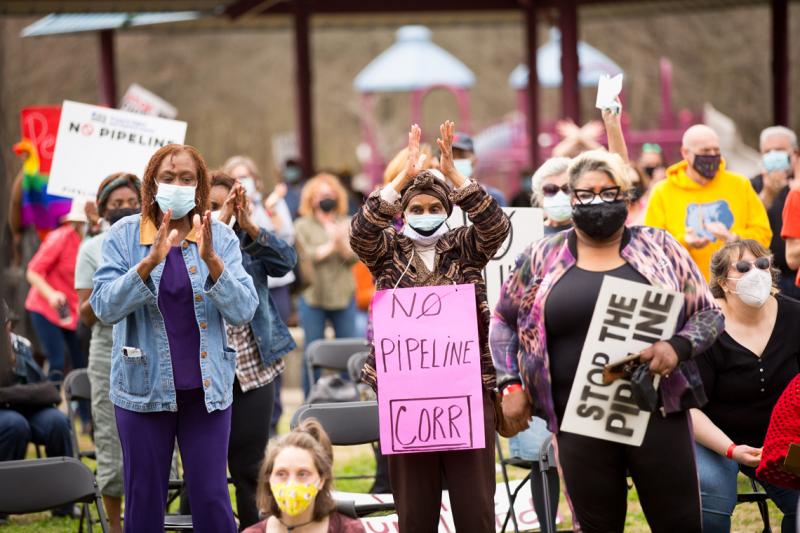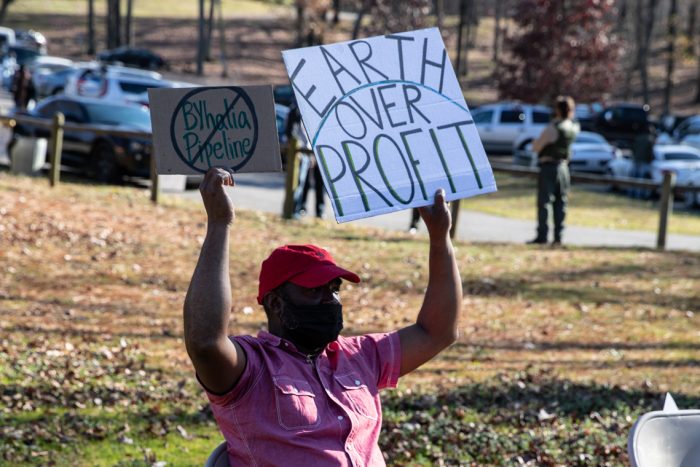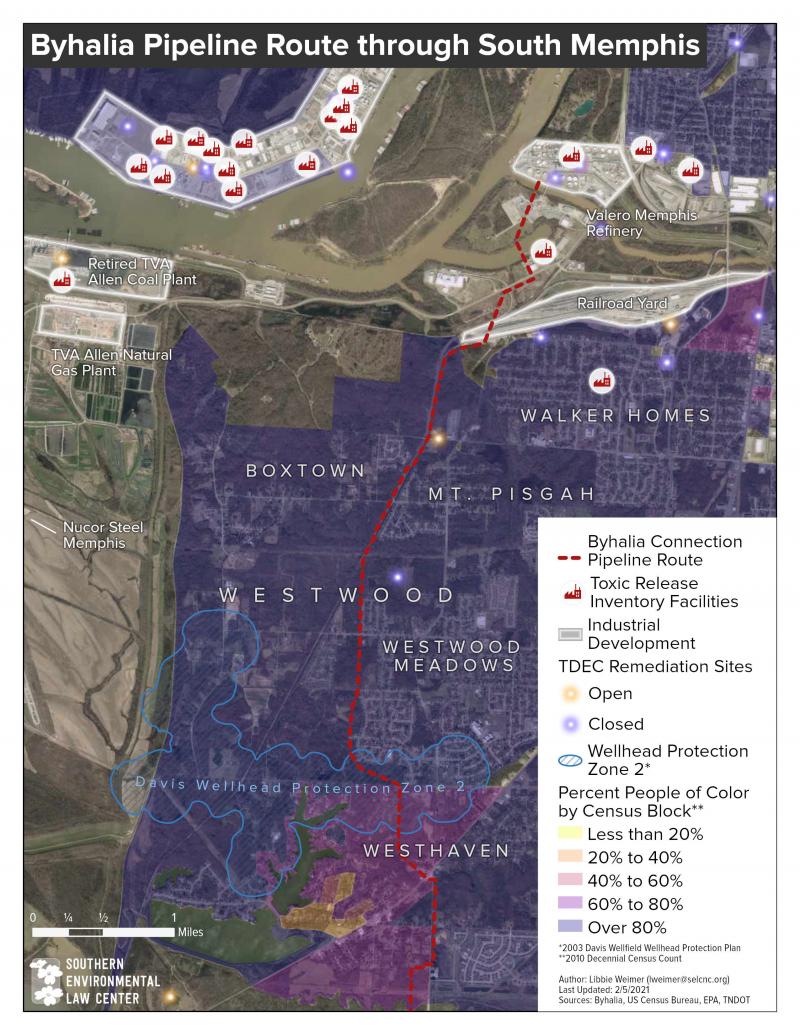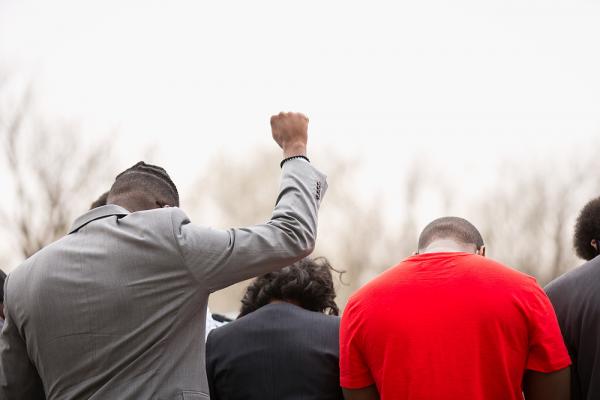Al Gore comes to Memphis to oppose ‘reckless, racist’ Byhalia pipeline
Former Vice President Al Gore returned to Tennessee Sunday to voice his opposition to the Byhalia pipeline at a rally organized by Memphis Community Against the Pipeline. The high-pressure crude oil pipeline proposed by Valero and Plains All American cuts through historic Black neighborhoods in southwest Memphis and threatens a nearby drinking water well field owned by Memphis Light, Gas and Water.

The former vice president spoke to the southwest Memphis community and rally attendants at Alonzo Weaver Park. He followed up on thoughts from a recent tweet in which he called construction of new fossil fuel pipelines “reckless” and the proposed route of the Byhalia pipeline “racist.”
“I’ve got three words for you: reckless, racist, ripoff,” said Gore, before a masked, socially-distant and energized crowd.
Gore and other speakers at the rally spoke of the environmental injustices caused by this pipeline that would cut through predominantly Black communities in southwest Memphis, including historic Boxtown. A neighborhood formed in the late 1800’s that was named after formerly enslaved people used scraps of wood and metal from train boxcars to build their homes. One community member, and co-founder of Memphis Community Against the Pipeline, Kizzy Jones, who grew up in the area spoke of the community impacts responded to one pipeline developer’s comment that her neighborhood was the path of least resistance.
“I’m here to tell you our community is the path of resistance,” she said.

What you need to know about how the Byhalia Pipeline impacts Memphis
This is not the first time that southwest Memphis residents have been forced bear the risks of environmental pollution. A 2013 study identified the area as an air pollution hotspot due to the quantity of industries and emission sources, noting that the cumulative cancer risk in Southwest Memphis “was four times higher than the national average.”
“There are 2 types of crude oil pipelines: Pipelines that leak and pipelines that are going to leak,” said Senior Attorney George Nolan. “So remember, local governments have power. It is huge in a pipeline fight like this for a local community and their local government leaders to come together and use the power of local law to push back.”
Earlier in the day, on a quiet piece of property on the outskirts of the Boxtown community, Gore met with local landowners to hear their concerns over the Byhalia Pipeline and the battle they are facing to hold onto their land. The for-profit pipeline venture by Valero and Plains All American is trying to use eminent domain to confiscate property from local families and residents of southwest Memphis.
But several landowners are fighting back in court with pro bono legal assistance from local law firm Burch, Porter & Johnson.
There are two types of crude oil pipelines: Pipelines that leak and pipelines that are going to leak.
George Nolan, Senior Attorney

Pipeline’s path
Memphis residents are also concerned that the pipeline crosses directly through one of Memphis’s drinking water wellfields in an area where there are known and suspected holes in the clay layer that protects the Memphis Sand Aquifer, the city’s drinking water source. This drinking water wellfield provides water to the southwest Memphis communities in the path of the pipeline. Therefore, if a spill occurs, crude oil contaminants could move through holes in the clay layer and into the Memphis Sand Aquifer near the drinking water intakes for Boxtown and other surrounding neighborhoods.
“There’s nobody in charge of the aquifer. There’s no aquifer sheriff in town. That defies common sense,” said Protect Our Aquifer founder Ward Archer.
Congressman Cohen also spoke at the event. He recently reached out to President Biden to rescind a controversial fast-track permit approved by the U.S. Army Corps of Engineers, citing the environmental justice issues playing out over this crude oil pipeline project.
“This is one of the most spectacular community efforts I’ve seen in Memphis,” said Cohen. “What I’ve seen today, and what they should know is, this is not ‘the path of least resistance.’”
For more background on the pipeline, click here.
Follow SELC, MCAP, and Protect Our Aquifer on social media to follow the latest developments.

